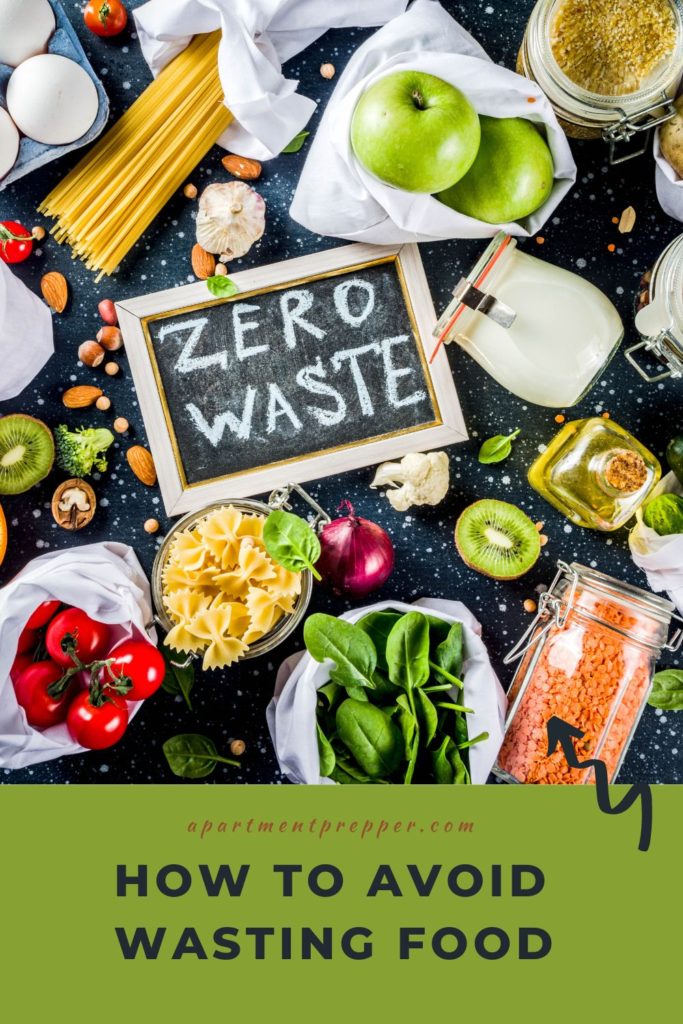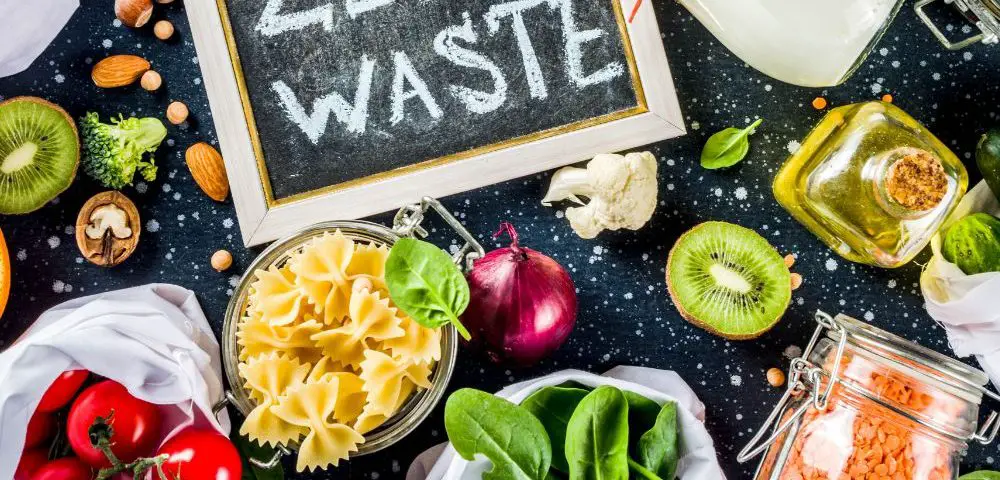Written by Bernie Carr
You know the feeling – you find a plastic container of leftovers you meant to eat a week ago, and has now gone bad, those blueberries you bought that have now gotten moldy, and now you feel guilty because you have to throw them away. We have the best of intentions but don’t always follow through with using up all the food we bought. It turns out we are not the only ones: an average person wastes nearly $3000 worth of groceries per year. That’s a lot of money! Not to mention all that waste that’s going in the landfill. We really need to look at tactics on how to avoid wasting food.
Tips on how to avoid wasting food
Watch those quantities
When grocery shopping, avoid buying too much food. One of the simplest ways to avoid food waste as a consumer is to buy less. You may get a good feeling when you initially pack your fridge with food, but having too much food may lead to food waste if your family cannot eat all of the food. Don’t buy more food than you need.
Avoid impulse and bulk purchases, especially produce and dairy that have a limited shelf life.
Create a menu
Make a menu on what you plan to eat for each meal at the the beginning of the week. This way, you can plan your meals ahead of time and buy only what you need.
Make a list
Always make a shopping list. After you plan the menu, make a list the ingredients that you will need. Before making purchases, think about what you are buying and when it will be consumed.
Check before buying
While making my weekly grocery list, I check the fridge and pantry to make sure I am not buying food I already have.
I also check the produce drawer mid-week to find out what vegetables or fruit are getting old and try to use them up first.
Get organized
As the old saying goes, “Out of sight, out of mind.” If you don’t see it, you’ll forget about it. Organize your fridge and pantry so the foods are in plain view. I often neglect to use items that are tucked away in the corner and find out that they went bad before I got the chance to use them.
Organize the kitchen using the FIFO method: This means, “first in, first out.” You can use up the older items first before they expire. Rotate your food by replenishing the old ones and replacing with a new stock.
Store food properly
Keep fruits and vegetables separate from each other and store them in the right place. For example, according to Consumer Reports, store onions away from potatoes, as onions give off a gas that causes potatoes to sprout too soon.
Refrigerate peeled or cut vegetables to keep them from getting rotten.
Refrigerator tips:
Your refrigerator may not be set to the optimum temperature, especially if you just moved in to your house or apartment. Make sure you use a refrigerator thermometer to check that the temperature is at 40° F or below for food safety. The temperature of your freezer should be 0° F or below.
Avoid overcrowding food in the fridge, as cold air is needed to circulate around the foods to keep them cold.
Store leftovers and other prepared foods in sealed baggies or containers. Consume those leftovers within a day or two at the most to avoid the risk of spoilage.
Avoid spills especially raw meat liquids, as they can breed bacteria and contaminate other foods. If you do have a spill, clean and sanitize the area right away.
Keep a log
Make a note on what foods spoiled, to help you identify which foods are going bad quickly so that you can adjust your shopping habits. Be aware of how much food you throw away.
Utilize your freezer
Utilize your freezer if you have extra food. I like to use a food sealer to pack leftovers or extra ingredients and freeze them for later use. A full freezer is acceptable, as long as you keep track of what you have in there. Avoid freezer burn by packaging foods properly and eliminating as much air from the package as possible.
Dining out
Restaurant portions are usually large, and may be enough for two people to share. I often split an entree and dessert with my husband. You both get to enjoy eating out, but still save money and avoid waste. If you do end up with leftovers, refrigerate them as soon as you get home. I store leftovers in tightly sealed containers and try to eat them the next day. If they sit too long, they become unappealing, not to mention potentially unsafe to eat.
Check the FoodKeeper app by FoodSafety.gov to find out if the food is still safe to eat.
Learn about food storage and expiration dates
We have a whole section on food storage and tips on extending the shelf life of foods. Such topics include how to make eggs last longer without a refrigerator, what happened when I used expired Tabasco sauce
Food doesn’t need to be thrown out when the expiration date is reached. Check out a previous article to learn more.
Here’s a post about what to do with foods that are about to expire.
Grow food from trash
I was excited to learn you can actually grow more vegetables and herbs from leftover pieces that I normally throw away. It all started when I grew green onions from the leftover roots. This can be done with carrot tops, bok choy and celery ends, etc.
Try composting
If you have the room try composting food waste, and use it for your garden.
Hopefully you found some ideas you can use to avoid wasting food. Have I missed any tips? Please share your favorite tips on avoiding food waste in the comments.
Today’s societal climate not supportive of prepping. With your help, we can keep bringing you content that is often suppressed. Help keep Apartment Prepper alive.
Join me on Patreon for ad-free content.
Or Help out via Paypal
About the author
Bernie Carr is the founder of Apartment Prepper. She has written several books including the best-selling Prepper’s Pocket Guide, Jake and Miller’s Big Adventure, The Penny-Pinching Prepper and How to Prepare for Most Emergencies on a $50 a Month Budget. Bernie’s latest e-book, FRUGAL DIY has just been released on Amazon. Her work appears in sites such as the Allstate Blog and Clark.com, as well as print magazines such as Backwoods Survival Guide and Prepper Survival Guide. She has been featured in national publications such as Fox Business and Popular Mechanics. Learn more about Bernie here.
FB: https://www.facebook.com/apartmentprepper
Instagram: https://www.instagram.com/apartmentpreppers/
Twitter: https://twitter.com/AptPrepper
YouTube: https://www.youtube.com/channel/UC7vOtdbo-wiBeBxD6puCr1Q
Pinterest: https://www.pinterest.com/aptprepper/




